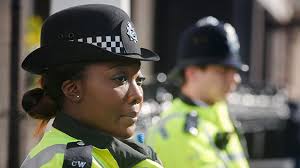Police powers to stop and search: your rights (UK)
The police can stop and question you at any time – they can search you depending on the situation.
A police community support officer (PCSO) must be in uniform when they stop and question you. A police officer doesn’t always have to be in uniform but if they’re not wearing uniform they must show you their warrant card.
The rules are different in Scotland.
Stop and question: police powers
A police officer might stop you and ask:
- what your name is
- what you’re doing in the area
- where you’re going
You don’t have to stop or answer any questions. If you don’t and there’s no other reason to suspect you, then this alone can’t be used as a reason to search or arrest you.
Stop and search: police powers
A police officer has powers to stop and search you if they have ‘reasonable grounds’ to suspect you’re carrying:
- illegal drugs
- a weapon
- stolen property
- something which could be used to commit a crime, such as a crowbar
You can only be stopped and searched without reasonable grounds if it has been approved by a senior police officer. This can happen if it is suspected that:
- serious violence could take place
- you’re carrying a weapon or have used one
- you’re in a specific location or area
Before you’re searched
Before you’re searched the police officer must tell you:
- their name and police station
- what they expect to find, for example drugs
- the reason they want to search you, for example if it looks like you’re hiding something
- why they are legally allowed to search you
- that you can have a record of the search and if this isn’t possible at the time, how you can get a copy
Removing clothing: police powers
A police officer can ask you to take off your coat, jacket or gloves.
The police might ask you to take off other clothes and anything you’re wearing for religious reasons – for example a veil or turban. If they do, they must take you somewhere out of public view.
If the officer wants to remove more than a jacket and gloves they must be the same sex as you.




